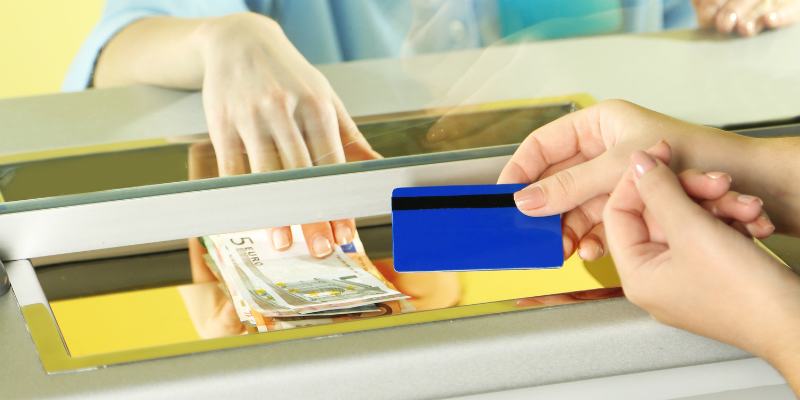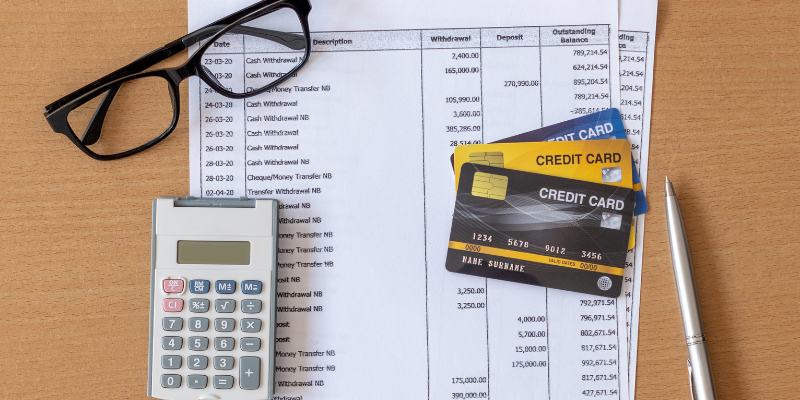7 Effective Ways To Build Credit Using Your Credit Card
Are you aware of how your credit card may affect your future financial future? In addition to being convenient tools, credit cards are essential for raising and preserving your credit score. Using a credit card wisely can open doors to improved financial health, whether just starting with credit or attempting to make up for previous errors.
This article explores seven practical ways to establish excellent credit using your credit card. Every recommendation, from monitoring your spending to paying bills on time, enables you to use credit as a rocket for financial progress and security.
1.Pay Your Credit Card Bills On Time:
A high credit score is based on timely payments. Your payment history is crucial, which makes up 35% of your FICO score. Regular on-time credit card payments help lenders to see you as a trustworthy borrower.
To maintain your payment schedule:
To prevent missing deadlines, set up automatic payments.
To monitor billing cycles, set up calendar alerts or reminders.
Although paying the full amount owed is preferable to avoid interest charges, spend at least the minimum amount owed.
Prioritize being on time because even one late payment might lower your credit score.
2.Maintain Your Credit Utilization:
Low credit utilization is the fraction of your available credit that you are using. Lenders can see you can handle credit responsibly if your credit utilisation rate is lower. Aiming to maintain your credit utilization below 30% might be beneficial.
For instance, carry only $3,000 if your credit limit is $10,000. Keep it below 10% for the best credit-building outcomes.
Tips on how to reduce your credit utilization:
Pay off amounts more than once within a payment period.
Do not increase your expenditure, but ask for a greater credit limit.
To fairly divide your expenses, use many credit cards.
3.Avoid Making Out Your Credit Card:
Lenders may become suspicious of your financial practices, and your credit score may suffer if you max out your credit card. Excessive balances might have a detrimental impact on your credit utilization ratio and indicate possible financial distress. Instead, pay the remaining monthly and use your card for small, manageable purchases like groceries or ongoing subscriptions. This strategy controls your credit utilization while establishing a solid payment history.
4.Use Your Credit Card Regularly, But Responsibly:

Occasionally, using your credit card shows activity and contributes to developing your credit history. Card issuers may close dormant credit accounts, lowering your credit limit and reducing the length of your credit history.
But it is essential to utilize it responsibly:
Pay for minor, regular expenses using your card.
Only spend what you can pay back in a given month.
Even if you can afford them, avoid making pointless purchases.
5.Monitor Your Credit Report Regularly:

Your credit report is a thorough log of your credit accounts and borrowing patterns. Regularly verifying your credit report guarantees that there are no mistakes that might lower your credit score.
Equifax, Experian, and TransUnion, the leading credit agencies, provide annual free credit reports. Check for Pay or accurate balances must be corrected.
Unrecognizable accounts might be a sign of fraud.
The status of closed accounts remains open.
To keep your credit score correct, dispute any errors right away.
6.Maintain Open Old Credit Accounts:
The duration of your credit history accounts for around 15% of your credit score. Older accounts demonstrate your consistency over time to lenders. Your credit utilization ratio may increase if you close old credit card accounts because this may shorten your credit history and decrease your available credit.
Make minor purchases sometimes and pay them off on time to keep your accounts open rather than shutting down ones you no longer use. This approach maintains a reasonable utilization rate while preserving your credit history.
7.Avoid Applying For Too Many Credit Cards:
Every time you apply for a new credit card, the issuer does a hard inquiry, which might temporarily lower your credit score. Lenders may perceive you as financially unstable if you submit fewer applications in a short amount of time.
To avoid this:
Before applying, do extensive research on credit cards to be sure they meet your needs.
To reduce the effect on your credit score, space out your applications across time.
Before applying for new credit, properly maintain your current credit.
The Benefits Of Developing Good Credit:
Although it takes constant work and self-control to establish credit with your credit card, the benefits are worthwhile. A high credit score provides access to better loan conditions, reduced interest rates, and job or renting chances. It is essential to use credit cards carefully, even if they may be helpful to instruments. You may improve your financial profile and reap long-term rewards by monitoring usage, avoiding pointless credit card applications, and making on-time payments.
Conclusion: Using Credit Cards To Establish Financial Stability
Building sound financial habits is the key to getting good credit with a credit card. Keep your credit profile in good shape, pay your bills on time, monitor your spending, and keep your credit utilization low. Apply for credit cards relatively infrequently and verify the authenticity of your credit record regularly to preserve your credit score.
Remember that establishing credit is a process rather than a quick fix. You may use your credit card to access financial possibilities and attain long-term stability if you put in persistent work and make sensible decisions. Your financial foundation will be stronger the earlier you begin.
Related Posts
- Medical Debt And Its Effect On Your Credit Score
- How To Start A Digital Marketing Business: A Concise Guide
- Top 5 Strategies To Legally Reduce Taxes On Rental Income
- How To Get A Business Credit Card With Low Or No Credit?
- Best Online Interest Rates For Savings Accounts In 2025
- Green Investments: How To Align Your Portfolio With Your Values